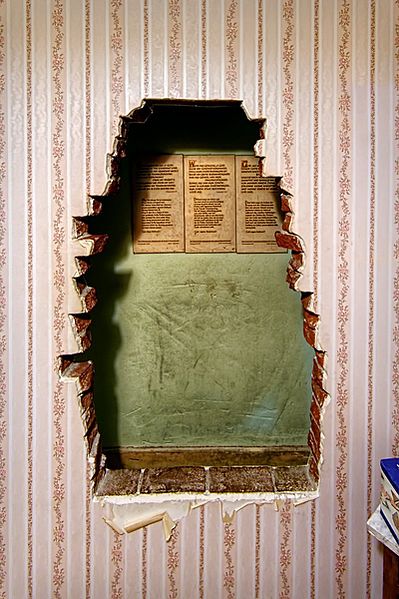I’m a bit of a recreational conspiracy theorist. Since I think I have made up that term, I will take the liberty of describing it. It basically means that I like to look for conspiracies in everything. What makes me different than other conspiracy theorists is that I do it for fun. As a result I’m never really quite sure how much of a conspiracy theory I believe. I find amusement in creating outlandish connections and then trying to make them sound plausible to the people around me. Sometimes I completely believe what I am saying, and other times I am just having a bit of fun.
So I have made an effort to stay far away from anything you could call a conspiracy theory in this little project. Yesterday, I may have toed the line a little bit, but I actually heard a political analyst on the radio confirming some of the statements I made yesterday, so I feel confident that I have stayed on the “reality” side of that imaginary line. I preface today’s short post with this because what I am about to share may seem to be a conspiracy theory. I assure you, I believe what I am writing in this post, and I do not think that it is a conspiracy theory.
With all of that being said, we can continue.
There is a cost to pursuing peace.
When we go out of our way to be peaceful we find that we have to give up parts of ourselves in order fully pursue peace. This can mean that we have to tear out our own desire for revenge when we have been wronged, or it could mean we commit our own resources to help correct a situation for someone else. If you have been robbed, bringing peace into the situation could mean facing the person who has stolen from you, and offering them forgiveness. Or perhaps someone has been stolen from, and while you can not bring the thief to justice, you have it in your power to restore what was stolen by sacrificing something of your own.
In small things, people do this often, and the world does not take much note of them. We accept family members who have hurt us back into our lives, even though it would be easier to stay mad at them. Sometimes the person who has hurt us doesn’t even know that we have been hurt, but we release those feelings to accept them back. We accept the pain, and accept the possibility of more pain to welcome them back into relationship with us.
(I want to be clear that I am not encouraging us to stay in a situation that repeatedly results in physical or emotional harm. There is a difference between relational pain and abusive pain. While both may continue or reoccur over long periods of time, they are different and should be treated as such. The true intent of the person causing the pain should be considered.)
In larger things, we as people are less likely to extend the hand of peace when we have been wronged. There are not many of us who can imagine a suicide bomber being forgiven by the living victims of his crime. It is almost as if we see certain acts as outside of the realm of forgiveness because of their brutality. We see some offenses as being unforgiveable. Perhaps your whole family was unjustly imprisoned and died in captivity. Many of us would consider that unforgivable and would demand justice for those who carried out the act.
Unfortunately we have examples of people who have lived through this exact situation. Corrie Ten Boom was part of a Dutch family who had hidden Jews fleeing from persecution and imprisonment in Germany. Her family was caught, and imprisoned for their “crime”. Corrie and her sister Betsy were sent to Ravensbruck concentration camp, where Betsy died. Corrie was released (because of a clerical error apparently) and returned to Holland to start a rehabilitation center for concentration camp survivors. While giving a speech in Germany 2 years after the end of the war, Corrie was approached by one of her former guards who asked her for forgiveness. After a brief internal battle, Corrie decided that she must forgive him for his crimes. You can read the whole story here.
We do not like to accept that in order to pursue peace, we have to make sacrifices of our own.
I’d like to share the following video with you. It is an audio recording from a radio show called “This American Life” and in its brief 4 minutes it makes clear the extents to which pursuing peace can take us.
Now ask yourself, is the pursuit of peace worth the potential cost?
I think we both know the answer.


